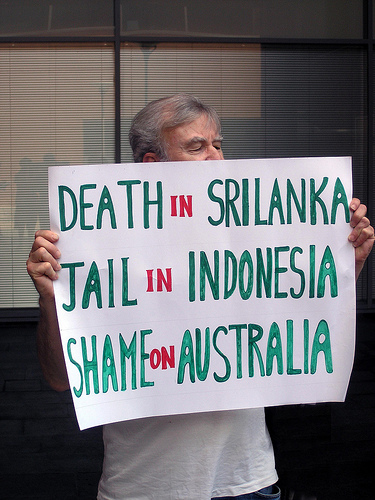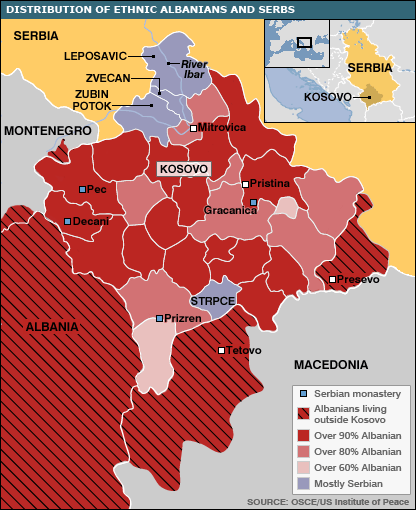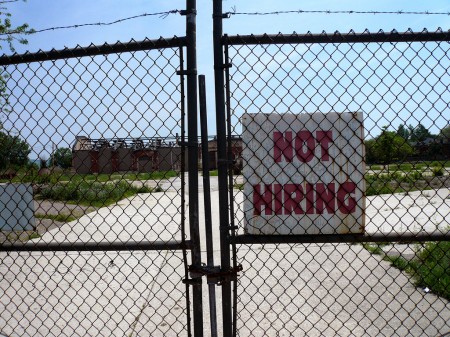This week’s Special Report dealt with the issue of unemployment in the wake of the financial crisis. How much do you know about the topic?
[QUIZZIN 30]
This week’s Special Report dealt with the issue of unemployment in the wake of the financial crisis. How much do you know about the topic?
[QUIZZIN 30]

This week the tiny nation of East Timor found itself caught up in the vicissitudes of Australia’s domestic politics. In her first policy speech as prime minister, Julia Gillard proclaimed the country’s interest in a regional solution to an apparently regional problem. She announced a plan to create a regional hub for processing refugees on East Timor as a means of deterring mainly Sri Lankan and Afghan asylum seekers from paying criminal syndicates for passage to Australia.
The Prime Minister stated she had discussed the issue with East Timor’s president Jose Ramos-Horta. She had, however, neglected to include East Timor’s Prime Minister Xanana Gusmao in the discussion, who then allowed his own party to join in a unanimous condemnation of the plan in parliament (considering the only thing Timorese politicians seem to agree on is their lack of love for Australia, there was probably never a big chance of the plan going anywhere anyway.)
According to Bulgarian sources, the Serbian government is considering a land swap with Kosovo. In exchange for a territory in northern Kosovo mainly inhabited by Serbs (grey area in map below), they would offer parts of the Presevo valley in southern Serbia, where a majority of the population is Albanian (shaded red area on the right.)

Yet, Kosovars don’t seem to like the idea. The prime minister of neighboring Albania has also rejected the idea, arguing that it is important to keep political borders in the region as they are.
Trying to carve out ethnically homogeneous polities is indeed problematic, simply because it will never work. Neither the Presovo valley, which would be added to Kosovo, nor the northern parts of Kosovo, which Serbia claims, are inhabited by the respective ethnicity exclusively. There will always remain an ethnic minority, whose rights need to be protected.
There is an interesting aspect to the Serbian “proposal”, though. By suggesting a land swap with Kosovo, does the Serbian government not somehow recognize the country’s sovereignty, which officially is still part of Serbia? The plan adds at least evidence to the argument that Serbia attaches less and less importance to the status of Kosovo. If Serbia will eventually have to choose between the EU and Kosovo, as Igor Jovanovic suggested last week, will it choose the EU?
To me it seems it will. To admit so, however, would be suicide for the current Serbian government.

With unemployment in many parts of the world the worst of the post-World War II era, policymakers are scrambling for solutions. This week the ISN examines the long-term unemployment trends of this ‘Great Recession’ and puts forward some potential policy prescriptions.
This ISN Special Report contains the following content:

Mexico is at a crossroads. As last week’s gubernatorial elections demonstrated, the Mexican state can no longer provide basic security and ensure the rule of law in many urban environments, signaling that Mexico might soon join the ranks of international failed states like Somalia, Afghanistan, and Haiti.
The New York Times adopted an optimistic perspective, noting the strength of the Mexican democracy amidst all the violence perpetrated by the drug cartels, as evidenced by the surprisingly positive voter turnout in many areas. These elections, however, also witnessed “the most blatant evidence of traffickers interfering in politics since Calderon came to power in late 2006,” with voter turnout at historic lows. Coming close to a stand-still in areas where drug violence has been prominent—in Ciudad Juarez, voter turnout was only 20 percent, and in the state of Chihuahua as whole, only one-third of voters showed up—turnout can be explained by the violence surrounding electoral campaigns. Leading up to the elections, candidates had been killed and threatened, campaign offices had been bombed and general fear of the power of Mexico’s infamous drug cartels had uncomfortably set into everyday life in the country.